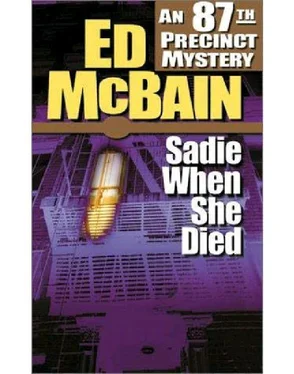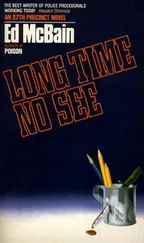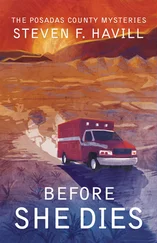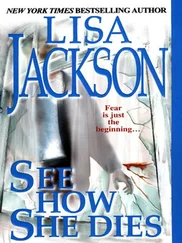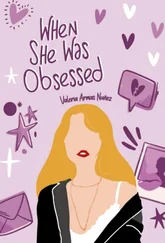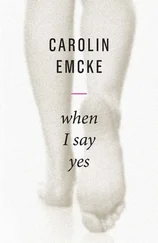Ed McBain - Sadie When She Died
Здесь есть возможность читать онлайн «Ed McBain - Sadie When She Died» весь текст электронной книги совершенно бесплатно (целиком полную версию без сокращений). В некоторых случаях можно слушать аудио, скачать через торрент в формате fb2 и присутствует краткое содержание. Жанр: Полицейский детектив, на английском языке. Описание произведения, (предисловие) а так же отзывы посетителей доступны на портале библиотеки ЛибКат.
- Название:Sadie When She Died
- Автор:
- Жанр:
- Год:неизвестен
- ISBN:нет данных
- Рейтинг книги:4 / 5. Голосов: 1
-
Избранное:Добавить в избранное
- Отзывы:
-
Ваша оценка:
- 80
- 1
- 2
- 3
- 4
- 5
Sadie When She Died: краткое содержание, описание и аннотация
Предлагаем к чтению аннотацию, описание, краткое содержание или предисловие (зависит от того, что написал сам автор книги «Sadie When She Died»). Если вы не нашли необходимую информацию о книге — напишите в комментариях, мы постараемся отыскать её.
Sadie When She Died — читать онлайн бесплатно полную книгу (весь текст) целиком
Ниже представлен текст книги, разбитый по страницам. Система сохранения места последней прочитанной страницы, позволяет с удобством читать онлайн бесплатно книгу «Sadie When She Died», без необходимости каждый раз заново искать на чём Вы остановились. Поставьте закладку, и сможете в любой момент перейти на страницу, на которой закончили чтение.
Интервал:
Закладка:
“Yes . . .”
“Who’d never before burglarized an apartment.”
“That’s right.”
“I must admit I feel a certain amount of sympathy for him.”
“Do you?”
“Yes. If he’s an addict he’s automatically entitled to pity. And when one considers that the woman he murdered was a bitch like my wife . . .”
“Mr. Fletcher . . .”
“Gerry, okay?”
“Well . . .”
“I know, I know. It isn’t very kind of me to malign the dead. I’m afraid you didn’t know my wife, though, Mr. Carella. May I call you Steve?”
“Sure.”
“My enmity might be a bit more understandable if you did. Still, I shall take your advice. She’s dead, and no longer capable of hurting me. So why be bitter? Shall we order, Steve?”
The waiter came to the table. Fletcher suggested that Carella try either the trout au meunière or the beef and kidney pie, both of which were excellent. Carella ordered prime ribs, medium rare, and a mug of beer. As the men ate and talked, something began happening. Or at least Carella thought something was happening; he would never be quite sure. Nor would he ever try to explain the experience to anyone because the conversation with Fletcher seemed on the surface to be routine chatter about such unrelated matters as conditions in the city, the approaching holidays, several recent motion pictures, the effectiveness of the copper bracelet Meyer had given Kling, the University of Wisconsin (where Fletcher had gone to law school), the letters Carella’s children had written and were still writing daily to Santa Claus, the quality of the beef, and the virtues of ale as compared to beer. But rushing through this inane, polite, and really quite pointless discussion was an undercurrent that caused excitement, fear, and apprehension. As they spoke, Carella knew with renewed dizzying certainty that Gerald Fletcher had killed his wife. Without ever being told so, he knew it. Without the murder ever being mentioned again, he knew it. This was why Fletcher had called this morning, this was why Fletcher had invited him to lunch, this was why he prattled on endlessly while every contradictory move of his body, every hand gesture, every facial expression signaled, indicated, transmitted on an almost extrasensory level that he knew Carella suspected him of the murder, and was here to tell Carella (without telling him) that, Yes, you stupid cop bastard, yes, I killed my wife. However much the evidence may point to another man, however many confessions you get, I killed the bitch, and I’m glad I killed her.
And there isn’t a goddamn thing you can do about it.
5
R alph Corwin was being held before trial in the city’s oldest prison, known to law enforcers and law breakers alike as “Calcutta.” How Calcutta had evolved from Municipal House of Detention, Male Offenders was anybody’s guess. The automatic reference, one might have thought, would be to “The Black Hole,” but Calcutta was not bad as prisons went; there were certainly less hanging-suicides among its inmates than there were at several of the city’s other fine establishments. The building itself was old, but built at a time when masons knew how to handle bricks (and, more important, cared how they were handled) and so it had withstood the onslaught of time and weather, yielding only to the city’s soot, which covered the rust-red bricks like a malevolent black jungle fungus. Inside the buildings, the walls and corridors were clean, the cells small but sanitary, the recreational facilities (Ping-Pong, television, and, in the open yard outside, handball) adequate, and the guards about as dedicated as those to be found anywhere—which is to say they were brutal, sadistic, moronic clods.
Ralph Corwin was being kept in a wing of the building reserved for heavy felony offenders; his cell block at the moment was occupied by himself, a gentleman who had starved his six-year-old son to death in the basement of his Calm’s Point house, another gentleman who had set fire to a synagogue in Majesta, and a third member of the criminal elite who had shot and blinded a gas-station attendant during a holdup in Bethtown. The wounded attendant had rushed out into the highway gushing blood from his shattered face and, because he could not see, was knocked down and killed by a two-ton trailer truck. As the old gag goes, however, he wouldn’t have died if he hadn’t been shot first. Corwin’s cell was at the end of the row, and Carella found him there that Wednesday morning sitting on the lower bunk, hands clasped between his knees, head bent as though in prayer. It had been necessary to get permission for the visit from both the district attorney’s office and Corwin’s lawyer, neither of whom, apparently, felt that allowing Carella to talk to the prisoner would be harmful to the case. Corwin was expecting him. He lifted his head as soon as he heard approaching footsteps, and then rose from the bunk as the turnkey opened the cell door.
“How are you?” Carella said, and extended his hand. Corwin took it, shook it briefly, and then said, “I was wondering which one you’d be. I got your names mixed up, you and the blond cop, I couldn’t remember which was which. Anyway, now I know. You’re Carella.”
“Yes.”
“What’d you want to see me about?”
“I wanted to ask you some questions.”
“My lawyer says . . .”
“I spoke to your lawyer, he knows . . .”
“Yeah, but he says I’m not supposed to add anything to what I already said. He wanted to be here, in fact, but I told him I could take care of myself. I don’t even like that guy. Did you ever meet that guy? He’s this little fink with glasses, he’s like a goddamn cockroach.”
“Why don’t you ask for another lawyer?”
“Can I do that?”
“Sure.”
“Who do I ask?”
“The Legal Aid Society.”
“Can you do that for me? Can you give them a call and tell them . . .”
“I’d rather not.”
“Why?” Corwin said, and studied Carella suspiciously.
“I don’t want to do anything that might be considered prejudicial to the case.”
“Whose case? Mine or the D.A.’s?”
“Either one. I’m not familiar enough with what the Court might consider . . .”
“Okay, so how do I call the Legal Aid?”
“Ask one of the officers here. Or simply tell your lawyer. I’m sure if you explain your feelings to him, he would have no objection to dropping out. Would you want to defend someone who didn’t like you?”
“Yeah, well,” Corwin said, and shrugged. “I don’t want to hurt his feelings. He’s a little cockroach, but what the hell.”
“You’ve got a lot at stake here, Corwin.”
“That’s just the point. What the hell difference does it make?”
“What do you mean?”
“I killed her. So what does it matter who the lawyer is? Nobody’s going to save me. You got it all in black and white.”
Corwin’s eyelid was twitching. He wrung his hands together, sat on the bunk again, and said, “I got to hold my hands together. I got to squeeze them together, otherwise I’m afraid I’ll shake myself to pieces, you know what I mean?”
“How bad has it been?”
“Cold turkey’s never good, and it’s worse when you can’t yell. Every time I yell, that son of a bitch in the next cell tells me to shut up, the one who put his own kid in the basement. He scares me. Did you get a look at him? He must weigh two hundred and fifty pounds. Can you imagine a guy like that chaining his own kid in the basement? And not giving him anything to eat? What makes people do things like that?”
“I don’t know,” Carella said. “Have they given you any medication?”
Читать дальшеИнтервал:
Закладка:
Похожие книги на «Sadie When She Died»
Представляем Вашему вниманию похожие книги на «Sadie When She Died» списком для выбора. Мы отобрали схожую по названию и смыслу литературу в надежде предоставить читателям больше вариантов отыскать новые, интересные, ещё непрочитанные произведения.
Обсуждение, отзывы о книге «Sadie When She Died» и просто собственные мнения читателей. Оставьте ваши комментарии, напишите, что Вы думаете о произведении, его смысле или главных героях. Укажите что конкретно понравилось, а что нет, и почему Вы так считаете.
